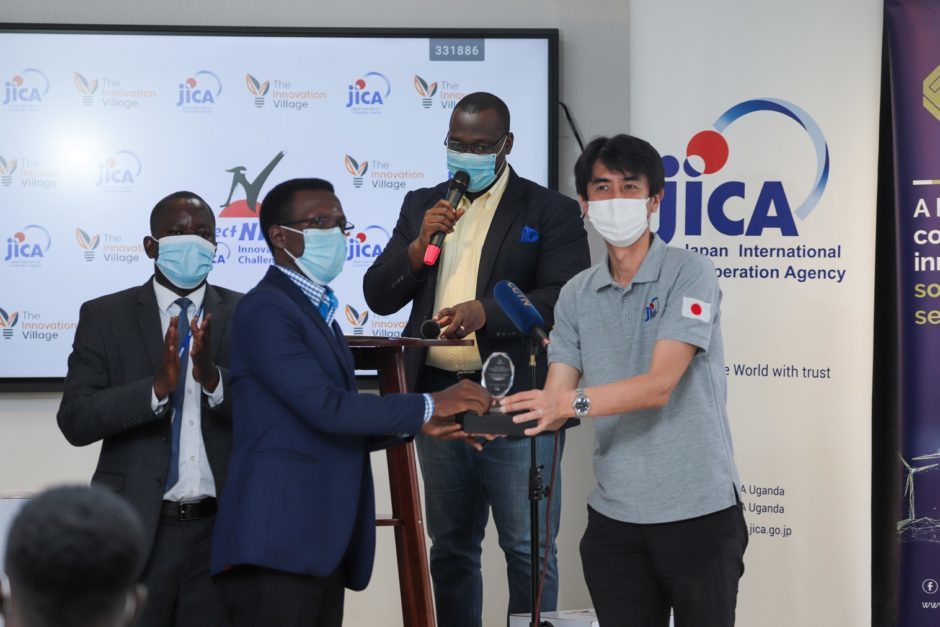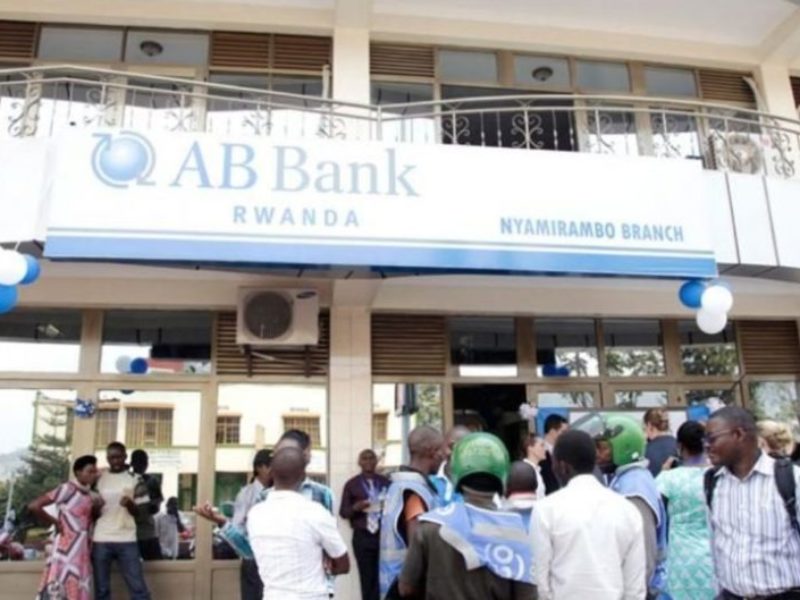
Japanese Volunteer brings Innovation to Kibungo Cooperative
Mr. Noguchi, who has learned to speak in fluent Kinyarwanda, said: “They accepted me and welcomed me. I’m very glad to meet them and work here.” The Covepaki workshop, which doubles as the showroom, is a beehive of activity with artists, tailors, basket weavers, sign makers, and others working side by side. On show are the usual traditional and popular Rwandan baskets (Agaseke), traditional bracelets, chairs, pictures, and other ornamental pieces. When Mr.Noguchi arrived nearly two years ago he said he could see that the Covepaki team were very experienced at what they do, but he decided to take on the challenge of seeing if they could develop new products, using their existing skills and materials, to find a new niche in the market not yet filled by other cooperatives. At his initiative, Covepaki began printing brightly colored t-shirts, sourced from Tanzania, with
words in Kinyarwanda, such as ‘Amakuru?’ (how are you?), which are sold at the workshop and at Republika Restaurant in Kiyovu, Kigali.
Last year Mr. Noguchi also mooted the idea of making modern, simple box-shape lamps. He noted that in Japan there was a market for ethnic-style lamps and realized they could make something similar for sale on the Rwandan market. He said: “They have the skills in the cooperative and so I thought this is possible.” He and his colleagues at Covepaki have been experimenting with the technique and think they now have it down pat. They make the lampshades from banana fiber, which is pounded in a mortar, washed, and sun-dried. The frames are made from locally sourced bamboo and put together by local artists skilled with the material. The lighting fixture is made by Mr. Noguchi himself, from electrical items he can purchase easily in Kibungo.
This new line of lamps will be among the artistic products Covepaki will exhibit at the International trade fair to be held at the show grounds in Gikondo in Kigali from 26 August to 6 September this year. The second challenge Mr. Noguchi faced was to help the cooperative access new markets, as the cooperative relied, mainly on local sales and passing trade. He has worked hard to find new outlets despite tough competition from many other Rwandan cooperatives producing similar items for sale. He was particularly pleased to have secured space in the Akagera Game Lodge shop in December 2009 where Covepaki now regularly sells products to tourists giving them an additional regular but modest income. Mr. Noguchi is still looking hard for other markets, such as in Kigali’s supermarkets. And he said: “We need to secure space in other hotels to increase our sales.”
Despite some successes, Mr. Noguchi admits that it has been a struggle to make some of his ideas work. It has also not been simple for him to win over the active participation of cooperative members in his ideas. For example, it took the cooperative eight months to make the first lampshade. Ms. Cecile Mukamusoni, Covepaki’s accountant, said each member earns a profit of 50,000 Rwf from sales every month, which is a decent income for people living in the countryside. She commended Mr. Noguchi for helping Covepaki by teaching members customer care skills, developing new products, and finding markets for products.
He is happy to have achieved some advances for the cooperative members, but nonetheless, he wishes he could have achieved more during his time in Kibungo. Mr. Noguchi will return home to Japan in September this year and is excited about seeing his mother, sister and cat again. His experience as a volunteer has given the art history graduate, an appetite to buckle down to work, particularly in the business world. He wants to study business, work in Japan for a while to develop his skills, and then return to Rwanda to see if he can use his previous experience in the country with newly acquired business acumen to help develop small and medium enterprises.“This is my second country”, he said. “I took time to adapt, but somehow I have become Rwandan. “ Currently, 29 Japanese Volunteers are working in various fields such as education, rural development, and engineering in all the provinces of Rwanda through Japan International Cooperation Agency (JICA). The number of volunteers is expected to reach more than 40 by the beginning of 2011. For more information contact:
David Sekyanzi, Mobile: +250 783 161340 Japan International Cooperation Agency (JICA) Rwanda Office

